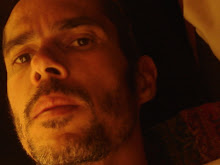Wednesday, June 30, 2010
Thursday, June 24, 2010
Oud
Often seen as the predecessor of the western lute, distinguished primarily by being without frets, commonly used in Middle Eastern music, the words "lute" and "Oud" are both speculated to be derived from Arabic العود (al-ʿūd).
The Oud was most likely introduced to Western Europe by the Arabs who established the Umayyad Caliphate of Al-Andalus on the Iberian Peninsula beginning in the year 711 AD.
According to Farabi, the oud was invented by Lamech, the sixth grandson of Adam. The legend tells that the grieving Lamech hung the body of his dead son from a tree. The first oud was inspired by the shape of his son's bleached skeleton...
http://www.classicalarabicmusic.com/Musical%20Instruments/Oud.htm
The Oud was most likely introduced to Western Europe by the Arabs who established the Umayyad Caliphate of Al-Andalus on the Iberian Peninsula beginning in the year 711 AD.
According to Farabi, the oud was invented by Lamech, the sixth grandson of Adam. The legend tells that the grieving Lamech hung the body of his dead son from a tree. The first oud was inspired by the shape of his son's bleached skeleton...
http://www.classicalarabicmusic.com/Musical%20Instruments/Oud.htm
Monday, June 21, 2010
SANi
SANi (South African Nanotech Initiative) - was initiated through the initiative of some members of the science community with an interest in nanotechnology. The call for participation and promise of support, by the Department of Science and Technology (DST), in the European Community Framework Programme 6 offered the opportunity for the first meeting of interested parties, called by Dr Malik Maaza and Dr Phil Mjwara, on 14 May 2002 at the University of the Witwatersrand. From this day SANi has evolved into an initiative that spans South Africa...
http://www.sani.org.za/
http://www.sani.org.za/
Saturday, June 19, 2010
Busi Mhlongo - We Baba Omncane live@Nantes & Roskilde
Maskanda (or maskandi) is a kind of Zulu folk music that is evolving with South African society. Ethekwini Online describes it as "The music played by the man on the move, the modern minstrel, today’s troubadour. It is the music of the man walking the long miles to court a bride, or to meet with his Chief; a means of transport. It is the music of the man who sings of his real life experiences, his daily joys and sorrows, his observations of the world. It’s the music of the man who’s got the Zulu blues."
Nowadays this is untrue in as much as it is no longer just the domain of men. African women - notably, Busi Mhlongo (October 28, 1947 - June 15, 2010), are also making maskanda music...
http://www.mg.co.za/article/2010-06-18-subverting-and-owning-maskanda
http://en.wikipedia.org/wiki/Maskanda
NGOisation
"The capital available to NGO's plays the same role in alternative politics as the speculative capital that flows in and out of the economies of the poor countries. It begins to dictate the agenda. It turns confrontation into negotiation. It depoliticises resistance. It interferes with local peoples' movements that have traditionally been self-reliant...The 'NGOisation' of politics threatens to turn resistance into a well-mannered, reasonable, salaried, 9-5 job. With a few perks thrown in."
Arhundati Roy - San Francisco 2004.
Arhundati Roy - San Francisco 2004.
Sunday, June 13, 2010
Saturday, June 12, 2010
A Ribat (From the Arabic رباط ribāṭ, hospice, hostel.) is an Arabic term for a small fortification as built along a frontier during the first years of the Muslim conquest of North Africa to house military volunteers, called the Murabitun. These fortifications later served to protect commercial routes, and as centers for isolated Muslim communities.
In time, ribats became hostels for voyagers on major trade routes (Caravanserai) and refuges for mystics. In this last sense, the ribat tradition was perhaps one of the early sources of the Sufi mystic brotherhoods, and a type of the later zaouia or Sufi lodge, which spread into North Africa and from there across the Sahara to West Africa. Here the homes of marabouts (religious teachers, usually Sufi) are termed ribats. Such places of spiritual reteat were termed Khanqah in Persian.
http://en.wikipedia.org/wiki/Ribat
In time, ribats became hostels for voyagers on major trade routes (Caravanserai) and refuges for mystics. In this last sense, the ribat tradition was perhaps one of the early sources of the Sufi mystic brotherhoods, and a type of the later zaouia or Sufi lodge, which spread into North Africa and from there across the Sahara to West Africa. Here the homes of marabouts (religious teachers, usually Sufi) are termed ribats. Such places of spiritual reteat were termed Khanqah in Persian.
http://en.wikipedia.org/wiki/Ribat
Subscribe to:
Comments (Atom)
